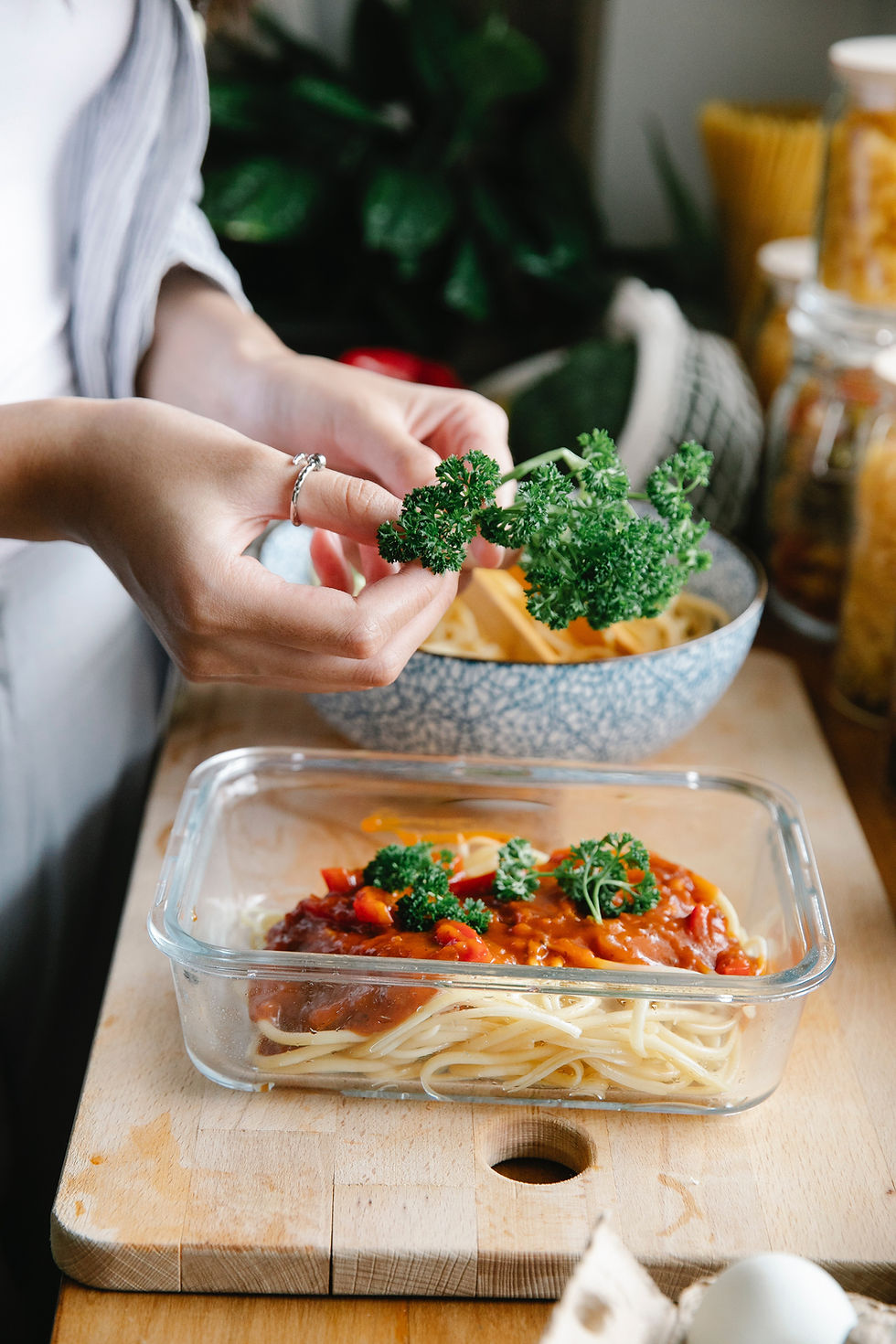Meal Prep Made Easy: Our Best Tips And Tricks
- The Luxe Blogger Contributors

- Jan 30, 2023
- 3 min read
Updated: Jan 31, 2023

Meal prep can be intimidating especially if you’re a beginner. However, it is a game-changer once you get the hang of it. No more going home exhausted from work every night, rummaging through your fridge, and figuring out what to cook for dinner. With meal prep, you can now use that extra time for yourself or spend it with your family. Not to mention, meal preps are definitely the healthier and more affordable option.
Lucky for you, we’re here to make your meal prep life a little easier. How? Keep on reading!
Start slow
Now, I know you want to save more time by preparing meals a week, maybe more in advance. This, however, can be overwhelming especially if you’re new. Our advice is to start slow. You can start by prepping meals for 3 days and then go further along once you’ve gotten used to it. Making a habit of meal planning is no different than making any other great adjustment in your life. Starting small and gradually increasing confidence is an excellent strategy to ensure that your new habit is durable.
Take into account every food category
The whole point of food prepping is for health benefits. Whether you're planning meals for a week, a month, or just a few days, it's crucial to include foods from each food category.
The best diet prioritizes complete foods such as fruits, vegetables, whole grains, legumes, high-quality protein, and healthy fats while avoiding sources of refined grains, added sugars, and too much salt. Consider each of these food categories as you browse through your meal prep recipes.
Purchase high-quality storage containers

When it comes to meal prepping, you’re going to be using a lot of storage containers to well, store your food. It only makes sense to invest in high-quality ones. Consider the intended usage of each container before making your purchase. Choose freezer-safe, microwave-safe, or dishwasher-safe containers if you intend to freeze, microwave, or clean them in a dishwasher.
Glass containers are both environmentally friendly and microwave-safe. They are commonly accessible in stores and on the internet It's also useful to have varied sizes for different kinds of foods.
Sealing food in airtight packaging or storage containers not only keeps germs at bay, but also protects taste, locks in moisture, and helps avoid freezer burn.
Make time to plan ahead
It’s important to set aside time on a regular basis for planning. This is to avoid wasting time thinking of what to cook when your meal prep day comes. For example, you can sit and plan your menu for the next three days and then another menu for the following days of the week, depending on how far along you’re prepping. Having a menu prepared also helps whenever you’re going grocery shopping (so you don’t buy things you don’t need, ultimately reducing waste).
Making a food plan might take as little as 10-15 minutes each week for some people. You may require a few hours if your strategy includes preparing some food items ahead of time. Regardless of your method, the key to success is to make time and to be consistent.
Go to the grocery store with a list

As mentioned earlier, it’s easy to get carried away when you’re grocery shopping. Therefore, we recommend preparing a list of ingredients you need (based on the menu you prepared). See how it all comes together and makes meal prep a little simpler?
Another thing to take note of: Never go grocery shopping when you’re hungry! If you go to the grocery store when you're hungry, you're more likely to make impulse purchases that you'll regret later.
If you are a bit hungry before going to the supermarket, don't be afraid to take a snack first, even if it's something out of your usual meal and snack pattern.
Utilize the freezer
You may save time, cut down on waste, and extend your food budget by cooking particular dishes or meals in bulk and freezing them for later use. This technique works for basic ingredients like broth, tomato sauce, and soup.
Mix up your menu
While there are a lot of benefits to meal prepping, the one downside to it is the fact that it can get a little boring especially if you’re heating up the same meal for a few days in a row. At best, your meals will become monotonous, leading to a loss of culinary inventiveness. In the worst-case scenario, the lack of variety may contribute to vitamin deficits.
To avoid this, make it a point to experiment with different cuisines or meals on a regular basis. For protein, you can use egg, chicken, or fish. If you like vegetables, you can cook broccoli, asparagus, carrots, and many more. The choice is yours!
With all these tips and tricks, we hope you can kickstart your meal prep journey with no doubts. Say goodbye to takeouts and hello to healthy home-cooked meals!





Comments